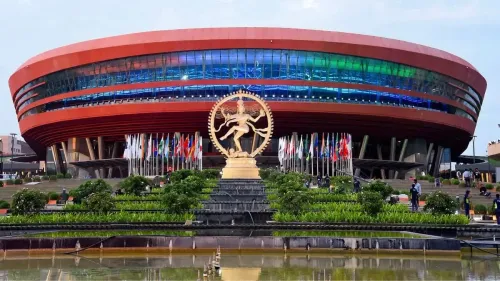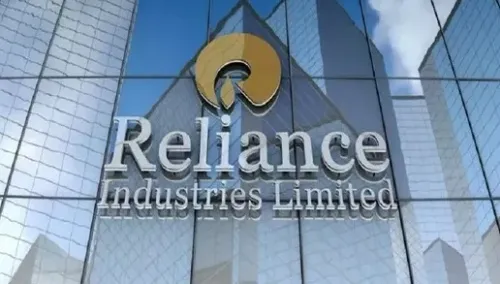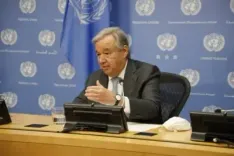Is India Becoming a Key 'Connector Country'?

Synopsis
Key Takeaways
- India as a connector country is poised to lead in key sectors.
- Stability in the economy promotes growth and confidence.
- India is projected to become the fourth-largest economy in the world.
- Liquidity measures by the RBI have enhanced market conditions.
- Domestic investors are reshaping equity markets.
New Delhi, May 22 (NationPress) Amidst global trade restructuring and shifts in industrial strategies, India is increasingly emerging as a "connector country", poised to serve as a crucial intermediary in fields such as technology, digital services, and pharmaceuticals, as highlighted by the Reserve Bank of India (RBI).
The Indian economy is safeguarded by stability across monetary, financial, and political spheres; consistent and reliable policies; a favorable business climate; and robust macroeconomic fundamentals, along with a policy environment that is transparent, rule-based, and forward-looking, according to the RBI's ‘State of the Economy’ report.
As per the IMF's projections from April 2025, India is expected to maintain its status as the fastest-growing major economy this year and is likely to overtake Japan to become the world's fourth-largest economy.
Inflationary pressures have significantly decreased and are on track for a consistent alignment with targets by 2025-26. Both consumers and businesses exhibit confidence, which supports a resurgence in economic activity.
Additionally, measures implemented by the Reserve Bank since January 2025 have notably improved liquidity conditions and stabilized financial markets. System liquidity has remained in surplus since the end of March 2025.
In light of uncertainties regarding global capital flows, it is notable that domestic institutional investors (DIIs) have outpaced foreign portfolio investors (FPIs) in their stake in Nifty-500 companies as of March 2025.
This signals a structural transformation in Indian equity markets, where DIIs, including mutual funds and insurance firms, are increasingly neutralizing volatility induced by FPIs, with retail and systematic investment plan (SIP) inflows establishing a consistent long-term investment foundation.
Sentiments in domestic financial markets have improved due to easing tensions between India and Pakistan, enhancements in the global trade environment, and reduced domestic inflation, according to the Reserve Bank.
The RBI also pointed out that the recent finalization of a free trade agreement with the UK signifies the fortification of bilateral trade relationships.
"Looking ahead, despite the formidable challenges that lie ahead, India is strategically positioned to tackle ongoing global headwinds with confidence, ready to seize emerging opportunities and solidify its role as a pivotal driver of global growth."









